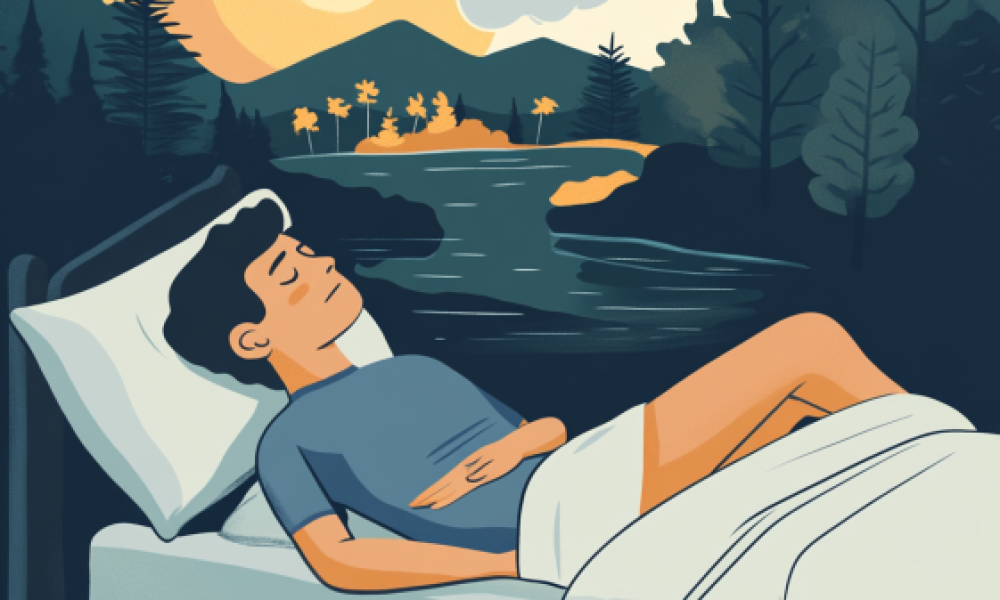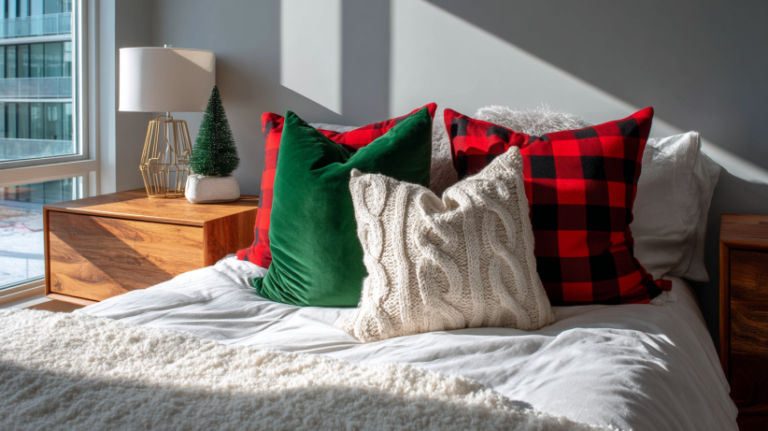Overcoming Insomnia Tips for Falling Asleep Faster
Overcoming insomnia starts with simple, science-backed habits. In this quick guide, you’ll learn exactly how to fall asleep faster, stay asleep longer, and wake up refreshed—without pills. Set a steady sleep schedule, cut late-day stimulants, eat sleep-friendly foods, use rapid relaxation methods, and fine‑tune your bedroom for deep, restorative rest.
Overcoming Insomnia With Proven Sleep Strategies
- Keep a consistent bedtime and wake time (even weekends) to reset circadian rhythm.
- Avoid caffeine, sugar, nicotine, and alcohol late in the day to protect melatonin and deep sleep.
- Choose sleep-boosting foods (tart cherries, almonds/walnuts, oats, bananas) to support overnight stability.
- Use the Military Sleep Method for rapid wind‑down when your mind won’t stop racing.
- Optimize your sleep environment: cool (60–67°F), dark, quiet, and low blue light before bed.
- Limit naps to 10–20 minutes, early in the day, to prevent insomnia from worsening at night.
Introduction
Overcoming insomnia can feel like a never-ending battle. Tossing and turning, checking the clock, and feeling exhausted the next day—it’s frustrating and draining. The good news? You don’t need sleeping pills to fix it!
With a few science-backed techniques, you can fall asleep faster, stay asleep longer, and wake up feeling refreshed. These 10 natural sleep secrets will help you reset your sleep patterns and finally get the deep, restorative rest your body craves.
💡 Learn more about insomnia treatments from the National Heart, Lung, and Blood Institute (NHLBI).
1. Fix Your Sleep Schedule for Overcoming Insomnia
Answer first: A consistent sleep‑wake window anchors your body clock so you can fall asleep naturally and wake up energized.
Your body thrives on routine. An irregular sleep schedule confuses your circadian rhythm, making it harder to fall asleep naturally.
How to Reset Your Sleep Schedule:
✅ Stick to a consistent bedtime and wake-up time (even on weekends).
✅ Avoid long naps—they can disrupt your sleep cycle.
✅ Get morning sunlight exposure within 30 minutes of waking up.
✅ Follow a wind-down routine before bed to prepare your body for sleep.
⏰ Read More: The Science of Sleep: 10 Proven Ways to Fall Asleep Faster & Wake Up Energized

2. Overcoming Insomnia by Reducing Stimulants (Caffeine, Sugar & Alcohol)
Answer first: Cutting stimulants 6+ hours before bed preserves melatonin and helps you fall asleep faster and sleep deeper.
Caffeine, sugar, and alcohol disrupt melatonin production, keeping your brain wired long after consumption.
What to Avoid for Better Sleep:
❌ Caffeine: Stop drinking coffee, tea, and soda at least 6 hours before bed.
❌ Sugar: Causes energy spikes and crashes, leading to nighttime wakefulness.
❌ Alcohol: Fragments sleep cycles, reducing deep sleep quality.
❌ Nicotine: A stimulant that delays sleep onset.
☕ Read More: How Blue Light Affects Sleep & How to Block It
3. Try Sleep-Boosting Foods for Overcoming Insomnia
Answer first: Prioritize foods rich in melatonin, magnesium, and tryptophan to calm your nervous system and support overnight stability.
Your diet plays a major role in sleep quality. Some foods promote relaxation, while others trigger restlessness.
Best Foods for Overcoming Insomnia & Better Sleep:
🍌 Bananas – Rich in magnesium and potassium to relax muscles.
🥜 Almonds & walnuts – Contain melatonin and healthy fats to stabilize blood sugar.
🍒 Tart cherries – One of the best natural melatonin sources.
🥣 Oatmeal – Helps increase serotonin levels for better sleep.
🦃 Turkey & warm milk – Contain tryptophan, which supports deep sleep.
🍏 Read More: Best Foods for Deep Sleep & Overcoming Insomnia

4. Use the Military Sleep Method for Overcoming Insomnia
Answer first: This two‑minute relaxation protocol helps release muscle tension and quiet mental chatter so you can drift off quickly.
The Military Sleep Method was designed to help soldiers fall asleep fast, even in stressful environments.
How to Do It:
✅ Relax your face muscles, including your tongue and jaw.
✅ Drop your shoulders and arms, letting them sink into the mattress.
✅ Exhale deeply, relaxing your chest and legs.
✅ Picture a calming scene like floating on a lake.
✅ Repeat “Don’t think, don’t think” for 10 seconds to clear intrusive thoughts.
🛌 Read More: 10 Sleep Hacks That Actually Work – #7 Will Surprise You!
5. Optimize Your Sleep Environment for Overcoming Insomnia
Answer first: Cooler, darker, quieter bedrooms help you fall asleep faster and stay asleep longer.
Your bedroom should be cool, dark, and quiet to support deep, uninterrupted sleep.
How to Improve Your Sleep Environment:
✅ Set the temperature between 60-67°F (15-19°C).
✅ Use blackout curtains to block unwanted light.
✅ Try white noise or nature sounds to drown out disruptions.
✅ Remove electronics to avoid blue light exposure.
🏡 Read More: Create a Nighttime Routine to Overcome Insomnia
6. Overcoming Insomnia with Power Naps
Answer first: Short, early‑day power naps can lift energy without sabotaging nighttime sleep.
Short naps can boost alertness without making you groggy, but improper naps can worsen insomnia.
Best Nap Strategies:
✅ Power naps (10-20 minutes) for quick energy boosts.
✅ Avoid napping late in the day, as it disrupts nighttime sleep.
⏳ Read More: The Benefits of Power Naps & How to Nap Correctly
FAQ
- How long does it take to overcome insomnia naturally?
- Most people notice improvements within 1–2 weeks of consistent habits—especially a fixed sleep/wake time, morning light, and reduced late‑day stimulants.
- What’s the best temperature for sleep?
- Research generally supports a cool room—around 60–67°F (15–19°C)—to promote faster sleep onset and deeper sleep.
- Can I drink coffee and still sleep well?
- Yes, but stop caffeine at least 6 hours before bedtime (earlier if you’re sensitive) and avoid energy drinks late in the day.
- Do naps make insomnia worse?
- They can if they’re long or late. Keep naps to 10–20 minutes and schedule them early to avoid interfering with nighttime sleep.
Final Thoughts: Overcoming Insomnia for Better Sleep Tonight!
Insomnia doesn’t have to control your life! By following these 10 sleep secrets, you can train your body to fall asleep faster, sleep deeper, and wake up refreshed.
Start by adjusting your sleep schedule, avoiding stimulants, optimizing your environment, and using relaxation techniques for restful sleep.
🌙 Try these tips tonight and say goodbye to sleepless nights forever! 😴✨
Related reading from Cozy Bed Quarters
- Nighttime Routine: How to Fall Asleep Faster & Wake Refreshed
- Optimize Your Sleep Cycle to Wake Up Refreshed
- 10 Sleep Hacks to Try Tonight
Other reading we found popular























